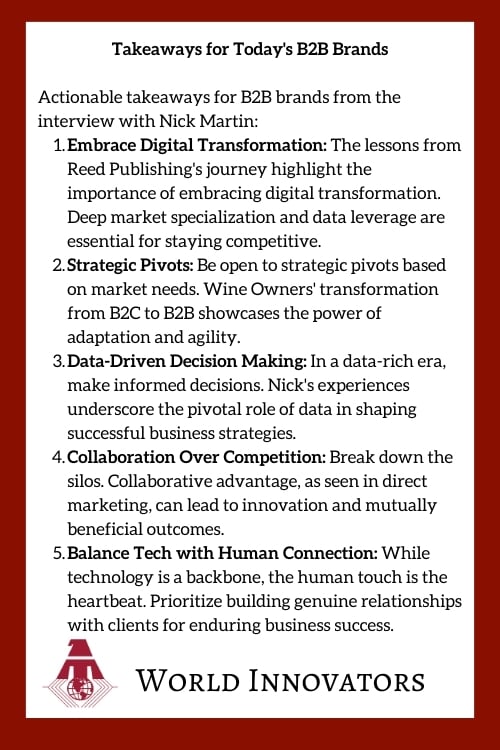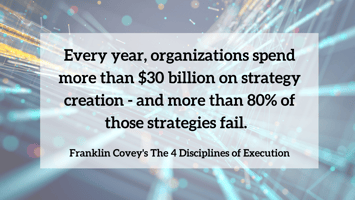I was recently interviewed by a prospective client, and I thought their thoughtful questions — and...
The Importance of Good Data for Market Specialization in B2B
In the fast-paced world of business, staying ahead of the curve is essential. By now, you've probably heard about the importance of data in decision-making. But have you ever considered how data can revolutionize B2B operations and drive market specialization? Recently in an interview with Nick Martin, founder Wine Owners, he doved into the significance of good data, its role in fostering operational efficiency, and how it enables businesses to work together seamlessly. So, get ready to unlock the power of data and take your B2B game to the next level!

Why Good Data Matters:
When it comes to B2B operations, having accurate and reliable data is the foundation of success. Good data allows businesses to gain deep insights into their target markets, enabling them to identify trends and opportunities that would be otherwise invisible. With this knowledge, companies can tailor their strategies to cater to specific niches and develop a deep market specialization that sets them apart from their competitors.
Operational Efficiency through Data:
Data-driven decision-making isn't limited to strategy alone. It also plays a vital role in streamlining operations and driving efficiency. By analyzing data, businesses can identify bottlenecks, streamline processes, and optimize resources. For example, analyzing customer data can help identify the most profitable customer segments, allowing for more targeted marketing efforts. Additionally, data enables businesses to forecast demand accurately, ensuring optimal inventory levels and reducing the risk of stock outs or excess stock.
The Power of a Common Language:
One often overlooked benefit of leveraging data in a B2B environment is the ability to create a common language among businesses. When companies share data with their partners, it opens up new avenues for collaboration and fosters a stronger network. By speaking a common language, businesses can align their goals, identify synergies, and work together more effectively. Whether it's sharing sales data with suppliers, collaborating on marketing campaigns, or optimizing supply chain operations, data acts as the glue that binds businesses together in a web of collaboration and growth.
Tools and Technologies for Data-Driven Success:
To make the most of the data revolution in B2B, businesses need the right tools and technologies. From customer relationship management (CRM) systems to advanced analytics platforms, there is no shortage of solutions available. These tools enable businesses to collect, analyze, and visualize data, transforming it into actionable insights. Moreover, with the rise of Artificial Intelligence and Machine Learning, businesses can now harness the power of predictive analytics to make data-driven decisions with even greater accuracy and speed.

Conclusion:
In today's hyperconnected and data-driven world, businesses cannot afford to ignore the power of data in B2B operations. Good data not only fuels market specialization and operational efficiency, but it also creates a common language that enables businesses to collaborate and thrive in a network. By embracing the data revolution and leveraging the right tools and technologies, B2B organizations can gain a competitive edge, adapt to changing market dynamics, and drive growth. So, take a proactive approach, make data your ally, and unlock the endless possibilities that lie within!
You can find out more about data analytics on this Podcast episode with Nick Martin.




